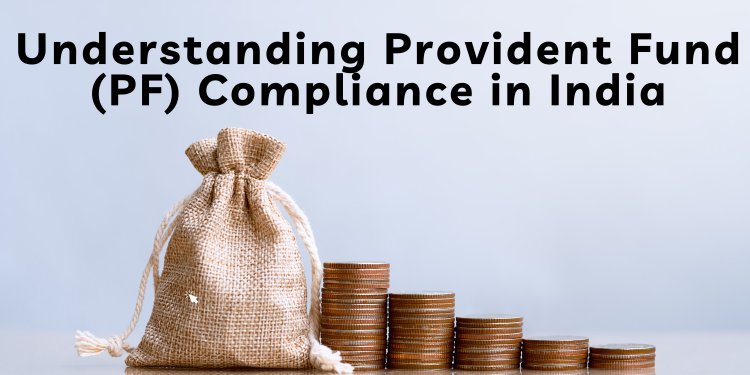Ensuring Provident Fund (PF) compliance is vital for organizations operating in India. As a key component of employee benefits, PF not only safeguards employees' financial futures but also ensures companies adhere to legal requirements, fostering a transparent and secure work environment.
What is Provident Fund (PF)?
Provident Fund (PF) is a government-regulated retirement savings scheme designed to provide financial security for employees post-retirement or in unforeseen situations. Governed by the Employees' Provident Funds and Miscellaneous Provisions Act, 1952, PF compliance is a critical legal requirement for organizations in India. Ensuring adherence not only promotes employee welfare but also helps businesses avoid legal penalties.
Applicability of PF Compliance
PF compliance applies to organizations that meet the following criteria:
-
Organizations with 20 or more employees (Mandatory registration under the Provident Fund Act).
-
Specific industries notified under the PF Act (e.g., factories, educational institutions, etc.).
-
Voluntary Registration: Organizations with fewer than 20 employees can voluntarily opt for PF registration.
-
Employee Coverage: Employees earning up to Rs. 15,000 per month are mandatorily covered under PF. Higher earners can opt-in through mutual agreement with the employer.
Key Components of PF Compliance
-
PF Registration:
-
Employers must register with the Employees' Provident Fund Organization (EPFO) within one month of becoming eligible.
-
-
Contribution Breakdown:
-
12% of the employee's basic salary and dearness allowance is contributed by both employer and employee.
-
Employer contributions are divided as:
-
8.33% to the Employees' Pension Scheme (EPS).
-
3.67% to the Employees' Provident Fund (EPF).
-
-
-
Timely Deposits:
-
Contributions must be deposited by the 15th of each month to avoid penalties.
-
-
EPF Returns and Record-Keeping:
-
Monthly and annual filings documenting contributions and withdrawals are mandatory.
-
Accurate record maintenance ensures compliance during EPFO audits.
-
Importance of PF Compliance
-
Legal Adherence: Non-compliance attracts penalties, fines, and even imprisonment.
-
Employee Welfare: Enhances job satisfaction by securing employees' financial futures.
-
Avoiding Penalties: Interest of 12% per annum is charged for delayed payments.
-
Audit Preparedness: Streamlined compliance reduces the risk of legal action during EPFO inspections.
Common Challenges in PF Compliance
-
Manual record-keeping leading to errors.
-
Delays in contributions and filings.
-
Lack of awareness about regulatory changes.
Tips for Ensuring PF Compliance
-
Leverage Technology: Automate payroll and PF calculations.
-
Monitor Updates: Regularly check EPFO notifications.
-
Educate Employees: Increase transparency regarding PF benefits.
-
Hire Experts: Consult compliance professionals to streamline processes.






